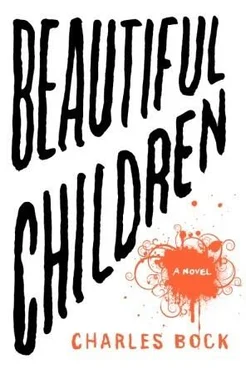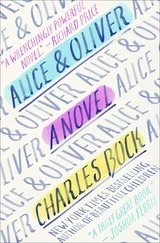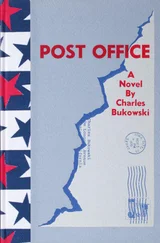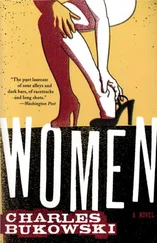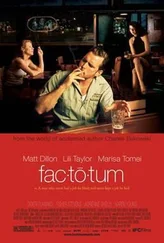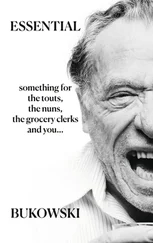Cheri wasn't equipped to know if three-dimensional tattoos could be taken out of the realm of the hypothetical, but with a chilling clarity, she remembered the electric buzz of that needle as it shot ink into the skin on her pubis. Remembered the sudden pinch that turned into fire.
Through the jutting heads and limbs, the stage looked pretty far away, like some sort of demented puppet theater. The crowd at the front was surging toward the bass player — he had wandered to the edge of the stage, and was sprinkling water from a plastic bottle down onto the overheated moshers. On that far side, Cheri also saw heads as they turned in one direction, people looking toward some sort of disruption, this dervish, cutting through people and heading away from the stage, arms churning, his legs fluid.
Cheri called his name and there was no response.
Stumbling on the sand, she hooked between a pair of goateed kids tossing a Frisbee. The Frisbee almost hit her and she flinched and ignored the apologies, heading around a small group of squatters and buskers who were sitting around in a semicircle, one of them strumming a battered six-string.
Cheri cupped her hands and shouted. Ponyboy did not completely break stride. But he slowed, seeming a bit confused, looking in her direction.
His hair was slick with sweat, she saw, his chest aglow.
“Hey,” she said, finally catching up, grabbing the moist skin along his upper arm.
Ponyboy's eyes blazed, and he took her in as if he did not recognize her.
“So,” she continued, “I'm here.”
The breadth of his massive chest rose and fell, and she could see he was struggling to control himself, to stand in front of her. He tensed now and, without betraying the slightest emotion, said, “Great.” His eyes began drifting toward something in the direction Cheri had come from, his right arm started behind his back.
She'd always teased that he was like some sort of indestructible mutant cockroach, that terrorists could set off dirty bombs and it wouldn't matter, Ponyboy would be the only thing left on the face of the earth, he'd be going through the pockets of the corpses or whatever. But the ultimate survivor was in front of her now, half-naked, sweaty, Cheri could smell the sex all over him. She looked at him trying to hide the camcorder in his hand, trapped, obviously struggling to figure out his next move. Tattoos and her plan were the last thing on his mind, she saw.
He was making one of those tapes.
Trying like hell to control her repulsion, Cheri planted her feet and forced herself to stay in front of him, to look right back at him.
The way Ponyboy was staring at her made it apparent to Cheri for the first time that she'd been wrong about the cockroach thing, too.
He would try anything to survive, she could taste that. But even more certain was that he was going to destroy himself. Whatever had happened between Ponyboy and his parents, whatever he had suffered through on the streets, the accumulated damage was simply too much to overcome. Cheri saw that now. She saw his destruction would happen despite his better instincts and nature. It would happen against his own wishes. But all the mistakes and miscues and hardships were going to inspire more schemes, each more desperate and ugly and convoluted and far-reaching than its predecessors. Ponyboy was headed for a crash. And whether it was her or some poor little girl, anyone unlucky enough to be within his reach, they were going down with him.
In the final scene before the screenplay of the movie of Cheri's life was put away, the nun stood at the front of the schoolroom and announced that God's obligation was his presence within us.
The nun said this presence was nothing so much as a person questioning how they might be more than they are.
In the screenplay of Cheri's life it said that for God to have mercy on our souls, we must have mercy upon one another.
It said Cheri had to do better than this.
A delicate and loving sadness filled her as she reached out now, her fingertips lightly rubbing the width of Ponyboy's shoulder.
He flinched, as if tensing for a fight, but Cheri continued, pressing her palm down onto him.
“Don't you want to see the band?” she asked. “Come on, honey. Let's check out the band.”
A sideways glance confirmed Newell's profile would be perfect for one of those portrait sketches, the kind where you use fancy pencils with fine points. Kenny envisioned a scant amount of light down the middle of Newell's face. He wanted the effect of a boy in the dark with a candle. Soft, wispish lines would recapture the angle of Newell's head, raised just a bit, his snubbed nose slightly turned upward, as if the boy were posing, pretending he did not smell something foul. A scribbled brow, thickish and clouded. Then Newell's eyelid, heavy and long, but also done in soft strokes — maybe this would make the boy's gaze properly haggard. The visible half of his pupil would be solid but flat, his iris gray and dull. The white of the paper would also be the white of Newell's eye, and this would tap into his intensity, and still show the boy looking outward, without betraying the slightest sense of emotion on his face. It seemed to Kenny that Newell's expression had solidified into armor, and the boy Kenny knew was hiding behind that armor, and Kenny wanted to capture this. He wanted to hint at freckles, maybe by going darker inside the shades along his cheeks. He wanted baby fat whose suppleness would accentuate just how weary Newell looked. Newell's mouth parted just a bit now, and this seemed to be important — the way the nearest side of his upper lip turned upward, forming what looked like a smirk. As if Newell could not care less what was out there. Bravado was the wrong word for what Kenny was seeing. But what about disdain?
7.7
Spring was a gift: deep shades of green and vibrant blooms. Neighborhoods had an idyllic feel that almost seemed too good to be true. Despite a few scorchers, the mercury still hadn't broken ninety when May arrived. People were especially encouraged. Could be, summer would be mild this year.
On Lorraine's birthday the phone rang during the noon hour. Nobody was home to answer it, and no message was left, but Caller ID registered the source: out of area. Newell remained outside the realm of the law — never getting arrested, never turning up in a juvenile center, hospital, or morgue. Every so often the case officer or a hired detective checked in, bringing details of a discovered body, a boy with some preliminary similarities to Newell. Lincoln and Lorraine would be electrified, each of them on edge through the next days, praying for their child to be alive, while at the same time desiring some sort of positive, conclusive identification, hating themselves for this, but wanting to know, finally, one way or another, what had happened to their son.
The failure to discover a body, for so long a source of hope that Newell was still alive, had started turning on itself. It was natural: how could you help but stop putting so much of your soul into each update? It was understandable: how could you keep jumping up in response when logic told you it was another dead end?
Neither Lincoln nor Lorraine could admit, even to their private selves, that after so many months, the odds of Newell being alive were almost nil. Nor could they accept the growing likelihood that they would never know why he had left, what kind of life he had found, what kind of end he had come to.
Still, there was that phone call. The hopeful weather. Lorraine's discovery of the converted DVDs, stacked and waiting for her in the kitchen pantry, also had an effect, further spurring something like a rebirth for the couple. That first night they sat on the couch together and watched memories of him until they both fell asleep. Two nights later, Lorraine found herself trusting Lincoln enough to show what she had of her fundraising proposal. He read carefully, went to lengths to praise what he saw, and pointed out potential sticking points. They stayed up late once again, this time brainstorming possible solutions. The next day they text messaged each other with the frequency of teen lovers, met at home at a prearranged time, and coordinated the proposal to varying degrees of mutual satisfaction. The result: a fourteen-page PowerPoint document, which quickly made its way to key personnel within the upper echelon of the Kubla Khan's community outreach and marketing departments.
Читать дальше
